It appears that the Western public, both relatively ‘educated’ and thoroughly ignorant, could, after some persuasion, agree on certain very basic facts – for instance that Russia has historically been a victim of countless European aggressions, or that countries like Venezuela, Cuba, Iran or North Korea (DPRK) have never in modern history crossed the borders of foreign nations in order to attack, plunder or to overthrow governments.
OK, certainly, it would take some ‘persuasion’, but at least in specific circles of the otherwise hopelessly indoctrinated Western society, certain limited dialogue is still occasionally possible.
China is different. There is no ‘mercy’ for China, in the West. By many standards, the greatest and one of the oldest cultures on Earth, has been systematically smeared, insulted, ridiculed and arrogantly judged by the opinion-makers, propagandists, ‘academia’ and mainstream press with seats in London, New York, Paris and many other places which the West itself calls the centers of ‘erudition’ and ‘freedom of information’.
Anti-Chinese messages are sometimes overt, but mostly thinly veiled. They are almost always racist and based on ignorance. And the horrifying reality is: they work!
They work for many reasons. One of them is that while the North Asians in general, and the Chinese people in particular, have been learning with zeal all about the rest of the world, the West is thoroughly ignorant about almost everything Asian and Chinese.
I personally conducted a series of simple but revealing ‘experiments’ in China, Korea and Japan, as well as in several countries of the West: while almost every North Asian child can easily identify at least a few basic ‘icons’ of Western culture, including Shakespeare and Mozart, most of the European university professors with PhDs could not name one single Korean film director, Chinese classical music composer, or a Japanese poet.
Westerners know nothing about Asia! Not 50% of them, now even 90%, but most likely somewhere in the area of 99.9%.
And it goes without saying, that Korea is producing some of the best art films in the world, while China and Japan are renowned for their exquisite classical art, as well as modern masterpieces.
In the West, the same ignorance extends to Chinese philosophy, its political system and history. In both Europe and North America, there is absolute darkness, withering ignorance, regarding the Chinese vision of the world. In Paris or Berlin, China is being judged exclusively by Western logic, by Western ‘analysts’, with unsurpassable arrogance.
Racism is the only fundamental explanation, although there are many other, secondary reasons for this state of affairs.
Western racism, which used to humiliate, attack and ruin China for centuries, has gradually changed its tactics and strategies. From the openly and colorfully insulting and vulgar, it has steadily evolved into something much more ‘refined’ but consistently manipulative.
The spiteful nature of the Western lexicon of superiority has not disappeared.
In the past, the West used to depict Chinese people as dirty animals. Gradually, it began depicting the Chinese Revolution as animalistic, as well as the entire Chinese system, throwing into the battle against the PRC and the Communist Party of China, such concepts and slogans as “human rights”.
We are not talking about human rights that could and should be applicable and respected in all parts of the world (like the right to life) protection for all the people of the Planet. That’s because it is clear that the most blatant violators of such rights have been, for many centuries, the Western countries.
If all humans were to be respected as equal beings, all countries of the West would have to be tried and indicted, then occupied and harshly punished for countless genocides and holocausts committed in the past and present. The charges would be clear: barbarity, theft, torture as well as the slaughter of hundreds of millions of people in Africa, the Middle East, what is now called Latin America, and of course almost everywhere in Asia. Some of the most heinous crimes of the West were committed against China and its people.
The ‘human rights’ concept, which the West is constantly using against China is ‘targeted’. Most of the accusations and ‘facts’ have been taken out of the context of what has been occurring on the global scale (now and in the history). Exclusively, Eurocentric views and ‘analyses’ have been applied. Chinese philosophy and logic have been fully ignored; never taken seriously. No one in the West asks the Chinese people what they really want (only the so-called ‘dissidents’ are allowed to speak through the mass media to the Western public). Such an approach is not supposed to defend or to help anybody; instead it is degrading, designed to cause maximum damage to the most populous country on Earth, to its unique system, and increasingly, to its important global standing.
It is obvious that the Western academia and mass media are funded by hundreds of millions and billions of dollars to censor the mainstream Chinese voices, and to promote dark anticommunist and anti-PRC nihilism.
I know one Irish academic based in North Asia, who used to teach in China. He told me, with pride, that he used to provoke Chinese students:
“Do you know that Mao was a pedophile?”
And he ridiculed those who challenged him and found his discourses distasteful.
But such an approach is quite acceptable for the Western academia based in Asia. Reverse the tables and imagine a Chinese academic who comes to London to teach Chinese language and culture, beginning his classes by asking the students whether they know that Churchill used to have sex with animals? What would happen? Would he get fired right away or at the end of the day?
*
The West has no shame, and it is time for the entire world to understand this simple fact.
In the past, I have often compared this situation to some medieval village, attacked and plundered by brigands (The West). Food stores were ransacked, houses burned, women raped and children forced into slavery, then subjected to thorough brainwashing.
Any resistance was crushed, brutally. People were told to spy on each other, to expose “terrorists” and “dangerous elements” in society, in order to protect the occupation regime.
Only two “economic systems” were allowed – feudalism and capitalism.
If the villagers elected a mayor who was ready to defend their interests, the brigands would murder him, unceremoniously. Murder or overthrow him, so there would always be a status quo.
But there had to be some notion of justice, right?
Once in a while, the council of the brigands would catch a thief who had stolen few cucumbers or tomatoes. And they would then brag that they protect the people and the village. While everything had already been burned to ashes by them
Given the history and present of China, given the horrid and genocidal nature of the Western past, ancient and modern, given the fact that China is by all definitions, the most peaceful large nation on Earth, how can anybody in the West even pronounce the words like ‘human rights’, let alone criticize China, Russia, Cuba or any other country that it put on its hit-list?
Of course, China, Russia or Cuba are not “perfect countries” (there are no perfect countries on Earth, and there never will be), but should a thief and mass murderer be allowed to judge anybody?
Obviously yes! It is happening, constantly.
The West is unapologetic. It is because it is ignorant, thoroughly uninformed about its own past and present deeds, or conditioned to be uninformed. It is also because the West is truly a fundamentalist society, unable to analyze and to compare. It cannot see, anymore.
What is being offered by its politicians and replicated by the servile academia and mass media, is totally twisted.
Almost the entire world is in the same condition as the village that I just described.
But it is China (and also Russia, Cuba, Venezuela, Syria, Iran, and other nations) that is being portrayed as villains and tormentors of the people. Black becomes white. War is peace. Slavery is freedom. A mass rapist is a peacemaker and a cop.
*
Once again: The West hates China. Let us be totally honest.
China has to understand it, and act accordingly. Sooner rather than later.
As we have already determined, the hatred towards China is irrational, illogical, purely racist; mainly based to the superiority complex of Western “thinkers”.
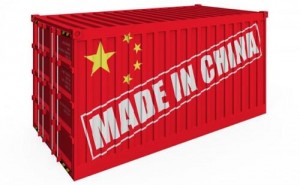
But also, it is based on the subconscious fear of the Westerners that Chinese culture and its socialist system (with all its ‘imperfections’) are greatly superior to the culture of terror and thuggery spread throughout our Planet by both Europeans and then North Americans.
Several years ago, I was interviewed by various Chinese media outlets, including the legendary People’s Daily, China Radio International and CCTV (now CGTN).
They all wanted to know why, despite all those great efforts of China to befriend the world, there is so much Sino phobia in Western countries. I had to face the same question, again and again:
“What else could we do? We tried everything… What else?”
Because of its tremendous hereditary optimism, the Chinese nation could not grasp one simple but essential fact: the more China does for the world, the less aggressively it behaves, the more it will be hated and demonized in the West. It is precisely because China is, unlike the West, trying to improve the lives of the entire planet Earth, that it will never be left in peace, it will never be prized, admired or learned from in such places like London, Paris or New York.
I replied to those who were interviewing me:
“They hate you, therefore you are doing something right!”
My answer, perhaps, sounded too cynical to the Chinese people. However, I wasn’t trying to be cynical. I was just trying to answer, honestly, a question about the psyche of Western culture, which has already murdered hundreds of millions of human beings, worldwide. It was, after all, the greatest European psychologist of all time, Carl Gustav Jung, who diagnosed Western culture as “pathology”.
But Who Really Hates China and How Much?
But let’s get numbers: who hates China and how much? Mainly, the Westerners – Europeans and North Americans. And Japan, which actually murdered tens of millions of Chinese people, plus China’s main regional rival, Vietnam.
Only 13% of the Japanese see China favorably, according to a Pew Research Center Poll conducted in 2017. 83% of the Japanese, a country which is the main ally of the West in Asia, see China “unfavorably”. In Italy which is hysterically anti-Chinese and scandalously racist at that, the ratio is 31% favorably, 59% unfavorably. Shocking? Of course, it is. But Germany does not fare much better, with 34% – 53%. The United States – 44% – 47%. France 44% – 52%. Entire half of Spanish nation sees China unfavorably – 43% – 43%.
Now something really shocking: the “rest of the world”. The numbers are totally the opposite! South Africa: 45% see China favorably, 32% unfavorably. Argentina 41% – 26%. Even the Philippines which is being pushed constantly by the West into confrontation with China: 55% favorably – 40% unfavorably. Indonesia that perpetrated several anti-Chinese pogroms and even banned the Chinese language after the US-sponsored coup in 1965: 55% favorably – 36% unfavorably. Mexico 43% – 23%. Bolivarian Republic of Venezuela: 52% – 29%. Chile 51% – 28%.
Then it gets even more interesting: Lebanon: 63% – 33%. Kenya: 54% – 21%. Brazil 52% – 25%. Tunisia 63% – 22%. Russia: 70% – 24%. Tanzania 63% – 15%. Senegal 64% – 10%. And the most populous country in Sub Saharan Africa, Nigeria – 72% – 13%.
The 2017 BBC World Service poll, Views of China’s influence by country, gives even more shocking results:
At the two extremes, in Spain, only 15% see China’s influence as positive, while 68% see it as negative. In Nigeria, 83% as positive and only 9% as negative.
Now, think for a while what these numbers really say.
Who is really benefiting from China’s growing importance on the world scene? Of course – the wretched of the Earth; the majority of our Planet! Who are those who are trying to stop China from helping the colonized and oppressed people? The old and new colonialist powers!
China is predominantly hated by Western imperialist countries (and by their client states, like Japan and South Korea), while it is loved by the Africans), most Asians and Latin Americans, as well as Russians.
Tell an African what is being said to the Europeans – about the negative or even “neo-imperialist”, influence of China on the African continent – and he or she will die laughing.
Just before submitting this essay, I received a comment from Kenya, from my comrade Booker Ngesa Omole, National Organizing Secretary, SDP-Kenya (Socialist):
“The relationship of China and Kenya particularly and Africa generally has not only led to tremendous development both in infrastructure but also a genuine cultural exchange among the Chinese and African people, it has also made African people understand the Chinese people firsthand, away from the daily half-truths and lies generated against China and the Chinese people and transmitted en masse globally through the lie factories like CNN. It’s has also shown that there is a different way to relate to the so called development partners and the international capital, the Chinese have developed a policy of non-interference in the internal affairs of a sovereign country as opposed to USA and Western Countries through IMF and World Bank who have imposed destructive policies on the continent that has led to the suffering and death of many African people, like that infamous Structural Adjustment Plan, that was a killer plan, after its implementation Kenyans unemployment skyrocketed, our country also became bankrupt.
Another comparison is the speed at which the projects are done, in the past we had a gruesome bureaucratic expensive process, which could take several years before any work could start on the ground. This has changed with the coming in of Chinese capital, we see the projects are being effected just in time, we see very high quality work contrary to what the western media want to portray that everything from China and Russia are fake before arrival.”
*
The Chinese system (Communism or socialism with Chinese characteristics), is in its essence truly internationalist.

As Chairman Mao Tse Tung wrote in his “Patriotism and Internationalism”:
“Can a Communist, who is an internationalist, at the same time be a patriot? We hold that he not only can be but also must be… The victory of China and defeat of the invading imperialists will help the people of other countries…”
Chairman Mao wrote this during the China’s liberation struggle against Japanese invaders. However, not much has really changed since then.
China is definitely willing and capable of putting much of the world devastated by Western imperialism, back onto its feet. It is big enough to do it, it is strong enough, it is determined and full of optimism.
The West produces, directly manufactures, crises and confrontations, like the one that took place in Beijing’s Tiananmen Square in 1989, or the one that never really managed to ‘take off’ (mainly due to the disgust of the majority of the local people with the selfish and pro-Western protesters) in Hong Kong, in 2014.
However, those Western implants and proxies are all that most Europeans and North Americans know about China (PRC): ‘Human Rights’, Falun Gong, Tibet, Dalai Lama, ‘Northwest of the Country’ (here, they don’t remember, or cannot pronounce the names, but they were told in the mainstream Western media that China is doing ‘something sinister’ there, so that’s what they are repeating), Tiananmen Square, Ai Wei-Wei and few other disconnected barks, ‘events’, and names.
This is how this colossus with thousands of years of history, culture and philosophy, is perceived, judged, and how it is (mis-) understood.
The entire situation would be laughable, if it were not so tragic, so thoroughly appalling and dangerous.
It is becoming clear who really hates China: it is not the “world”, and it is not those countries on all the continents that have been brutalized and enslaved by the Western imperialists. There, China is loved.
Those who hate China are the nations which are not ready to let go of their de facto colonies. The nations who are used to a good, too good and too easy life at the expense of others. To them, historically egalitarian and now for many decades socialist/Communist (with Chinese characteristics) China poses a truly great threat. Threat – not to their survival or peaceful existence, but threat to their looting and raping of the world.
China’s internationalist attitude towards the world, its egalitarianism and humanism, its emphasis on hard work and the tremendous optimism of its people, may soon, very soon, break the horrid inertia and the lethargy injected by Europe and the United States into the veins of all raped, plundered and humiliated nations.
China Has Already Suffered Enough!
In his ground-breaking book “China Is Communist, Damn It!”, a prominent China expert, Jeff Brown (who is presently based in Shenzhen) writes about the dehumanizing treatment, which the Chinese people had been receiving from Westerners, for centuries:
“…untold numbers in the 19th century… were pressganged and kidnapped, to be sent to the New World to work as coolie slaves.
The racism conducted on these Chinese coolies was instructive. On the ocean voyage from China to Vancouver, Canada, they were tightly packed and kept in dark, poorly ventilated holds for the three-week trip, so they would not have any contact with the Whites traveling aboveboard. No sunlight, no fresh air. The crew on the ships routinely talked about these Chinese allies in terms of “livestock” and they were handled and treated as such. Actually, they were treated worse than cattle, pigs, sheep and horses, as there are laws that require animals get so much open air and exercise per day, while in transit…
This kind of inhumane treatment of Chinese citizens is dispassionately captured in the diaries of a British officer, charged with overseeing them,
‘As children, we were taught that Cain and Coolies were murderers from the beginning; no Coolie was to be trusted; he was a yellow dog… The task of stowing away Coolies is a tiresome one. In orders, it is alluded to as “embarkation”. By those experienced in the job, it is known more as “packing”. The Coolies are not passengers capable of finding each his cabin. The Coolies are so much cargo, livestock, which has to be packed away. While experiences are ceaselessly pressing upon him, his attitude towards existence is the attitude of a domesticated animal.’
British 2nd Lieutenant Daryl Klein, from his memoir, “With the Chinks”, spoken like a true Western imperial racist. Of course, chinks is the worst slur word to be used against the Chinese. It’s the equivalent of yellow nigger. The term Coolie is not any better. It’s like calling someone from Latin America a wetback. At least Lt. Klein was honest in his total dehumanization of the Dreaded Other.
There are countless examples of discrimination against, and humiliation of the Chinese people by the Western colonialists, on the territory of China. The Chinese were literally butchered and enslaved in their own territory, by the Westerners and the Japanese.
However, there were also despicable crimes committed against Chinese people on the territory of the United States, including lynching, and other types of killing.
Hard working, many Chinese men were brought as slave laborers to the United States and to Europe, where they were often treated worse than animals. For no other reason but for just being Chinese. No apologies or compensation were ever offered for such acts of barbarity; not even decades and centuries later. Until now, there is a silence surrounding the topic, although one has to wonder whether it is really simple ‘silence’ that grows from ignorance, or whether it is something much more sinister; perhaps defiance and conscious or subconscious refusal to condemn the fruits of Western culture, which are imperialism, racism and consequently – fascism.
Gwen Sharp, PhD, wrote on June 20, 2014 for Sociological Images in his essay ‘Old “Yellow-Peril” Anti-Chinese Propaganda’:
“Chinese men were stereotyped as degenerate heroin addicts whose presence encouraged prostitution, gambling, and other immoral activities. A number of cities on the West Coast experienced riots in which Whites attacked Asians and destroyed Chinese sections of town. Riots in Seattle in 1886 resulted in practically the entire Chinese population being rounded up and forcibly sent to San Francisco. Similar situations in other towns encouraged Chinese workers scattered throughout the West to relocate, leading to the growth of Chinatowns in a few larger cities on the West Coast.”
Throughout history, China and its people have suffered at the hands of Westerners, both Europeans and North Americans alike.
According to several academic and other sources, including a publication “History And Headlines” (History: October 9, 1740: Chinezenmoord, The Batavia Massacre):
“On October 9, 1740, Dutch colonial overlords on the Island of Java (now a main island in Indonesia) in the port city of Batavia (now Jakarta, capital of Indonesia) went on a mad killing spree of ethnic cleansing and murdered about 10,000 ethnic Chinese. The Dutch word, “Chinezenmoord,” literally means “Chinese Murder.”
Anti-Chinese massacres were also repeatedly committed by the Spanish occupiers of the Philippines, and there were countless other cases of anti-Chinese ethnic cleansing and massacres committed by the European colonialist administrations, in various parts of the world.
The ransacking of Beijing’s Summer Palace by French and British forces was one of the most atrocious crimes committed by Westerners on the territory of China. An outraged French novelist, Victor Hugo, then wrote:
“We call ourselves civilized and them barbarians. Here is what Civilization has done to Barbarity.”
*
The West cannot treat Chinese people this way, anymore, but if it could get away with it, it definitely still would.
The superiority complex in both Europe and North America is powerful and unapologetic. There is real great danger that if unchecked and unopposed, it may soon terminate all life on our Planet. The final holocaust would be accompanied by self-righteous speeches, unrestrained arrogance, gasping ignorance of the state of the world, and generally no regrets.
Chinese people cannot be beaten on the streets of Europe or North America, anymore; they cannot be, at least theoretically, insulted directly in the face just for being Chinese (although that is still happening).
But there are many different ways to hurt and deeply injure a human being or the country.
My close friend, a brilliant Chinese concert pianist, Yuan Sheng, once told me, right after he left a well-paid teaching position in New York, and moved permanently back to Beijing:
“In the United States, I used to cry late into the night, almost every night… I felt so helpless. Things they were saying about my country… And it was impossible to convince them that they were totally wrong!”
Several years later, at the “First World Cultural Forum” held in Beijing, an Egyptian-French fellow thinker Amin Said argued that we are all victims of capitalism. I strongly disagreed, and confronted him there, in Beijing, and later in Moscow where we spoke, again, side by side.
“Western bigotry, brutality and imperialism are much older than capitalism. I believe that the things are precisely the opposite: Western violent culture is the core of the savage capitalism.”
Recently, while addressing students and teachers at one of old alternative and officially progressive schools in Scandinavia, I finally understood the scope of the creeping anti-Chinese sentiments in Europe.
During my presentation about the global conflicts being fueled by the United States and Europe, the audience was silent and attentive. I spoke at a huge hall, addressing some 2 – 3 hundred people, most of them future educators.
There was some sort of standing ovation. Then questions. Then discussion over coffee. There, precisely then, things got very wrong.
A girl came and with an angelic smiled uttered:
“Sorry, I know nothing about China…. But what about the Northwest of the country?”
The northwest of China is a few times bigger than Scandinavia. Could she be more specific? No, she couldn’t:
“You know, the human rights… Minorities…”
An Italian girl approached me, saying she is studying philosophy. The same line of questions:
“I don’t know much about China, but…”
Then her questions got aggressive:
“What do you mean when you talk about ‘China’s humanism?’”
She was not asking, she was attacking. I snapped at her:
“You don’t want to listen, you simply want to hear yourself repeating what they brainwashed you with.”
One of the organizers of the conference hated my interaction with her spoiled, rude, self-centered and uneducated brats. I could not care less. I told her directly to her face.
“Then why did you accept the invitation to be a keynote speaker?” she asked.
I answered, honestly:
“To study the Europeans, anthropologically. To face your racism and ignorance.”

Next day, the same. I showed my shocking documentary film “Rwanda Gambit”, about how the West created the totally false Rwanda narrative, and how it triggered real genocide, that in the Democratic Republic of Congo (DRC).
But all that the audience wanted to discuss was China!
One said:
“I saw a Chinese government company building two sports stadiums in Zambia. Isn’t it strange?”
Really? Strange? The Chinese health system is mainly based on prevention and it is successful. Building stadiums is a crime?
Another one recalled that in West Africa,
“China was planting cashew nuts.”
That was supposed to match centuries of horrors of Western colonialism, the mass murder and slavery of hundreds of millions of Africans at the hands of the Brits, French, Germans, Belgians and others.
At the airport, leaving back for Asia, I wanted to throw up and simultaneously, to shout from joy. I was going home, leaving this brainwashed continent – this intellectual bordello behind.
The West was beyond salvation. It will not stop or repent.
It can only be stopped, and it has to be stopped.
*
Jeff Brown in his book “China Is Communist, Damn It!” pointed out one essential difference between the Chinese and Western mindset:
“China and the West could not be more different. Western civilization is founded on Greek philosophy, culture, politics and economy. Ancient Greece was composed of hundreds of relatively small, independent city-states, which on a daily basis, were comparatively isolated from each other. They were separated by water or mountain ranges, ensconced in bays and valleys. Each city-state’s population could usually be counted in the thousands, not millions. There were a number of different dialects, with varying degrees of mutual comprehension, from familiar to total misunderstanding. Contact with each other was based on commerce and trade, grounding Western economy in the precepts of capitalism. The notion of personal agency in the West is founded in this economic system, where farmers, landowners, merchants and craftsmen were able to work and make business decisions individually, between themselves. Each city-state had its own independent government and over the centuries, there were phases of monarchy, oligarchy, tyranny and democracy. Local wars were frequent, to settle disagreements. These battles happened steadily, as ancient Greece’s agricultural production was not abundant, due to poor soils and limited tillable land. When food became scarce with droughts, agricultural trade could be interrupted, due to shortages, thus stoking the need for war, to reclaim the lost purchases of food.
Ancient and modern China could not be more radically different. Life, the economy and development all revolved around a large central government, headed by the emperor. Instead of being based on trade and commerce, China’s economy has always been founded on agricultural production and the harvests were and still are largely sold to the state. Why? Because the government is expected to maintain the Heavenly Mandate, which means making sure that all of the citizens have enough to eat. Therefore, farmers always knew that the grain they grew could very easily end up in another part of China, because of distant droughts. This whole idea of central planning extended to flood control. Communities in one area of China would be tasked to build dams or canals, not to help reduce flood risk for themselves, but for other citizens far away, downstream, all for the collective good.
The idea of independent city-states is anathema in China, as it always signaled a breakdown in the central power’s cohesion and governance, from border to border, leading to warlordism, strife and hunger.”
Chinese socialist (or call it Communist) system has clearly roots in China’s ancient history.
It is based on sharing and cooperation, on solidarity and harmony.
It is a much more suitable system for humanity, than what the West spread by force to all corners of the world.
When the West succeeds in something, it feels that it has “won”. It drives the banner pole into the earth, gets some fermented drink to celebrate, and feels superior, unique.
China thinks differently: “if our neighbors are doing well and are at peace, then China will prosper too, and will enjoy peace. We can trade, we can visit each other, exchange ideas.”
In the ancient days Chinese ships used to visit Africa, what is now Somalia and Kenya. The ships were huge. In those days, Europe had nothing so enormous at its disposal. Chinese ships were armed against the pirates, but they mainly travelled with scribes, scholars, doctors and researchers.
When they reached the African shore, they made contacts with the locals. They studied each other, exchanged gifts (some Chinese pottery and ceramics are still being found near the island of Lamu).
There was not much common ground between those two cultures, at that time. The Chinese scribes recorded: “This is not yet right time for permanent contact”. They left gifts on the shore, and sailed home. Nobody died. Nobody was “converted”. No one was raped. African land still belonged to Africans. African people were free to do what they chose.
A century or two later, the Westerners arrived…
*
I know China, but even better, I know the world in which China operates.
The more I see, the more I am impressed – I actually want China to be everywhere, and as soon as possible!
I have worked in all the tiny and large nations of Oceania (Polynesia, Melanesia and Micronesia), except in Niue and Nauru. There, the West divided this gorgeous and once proud part of the world, created bizarre borders, literally forced people to eat shit (dumping animal food in local stores), burdened them with foreign loans and introduced a culture of dependency and destruction (nuclear experiments, and military bases). Due to global warming, RMI, Kiribati and Tuwalu began “sinking” (in reality, the water is rising).
China came, with real internationalist determination. It began doing everything right – planting mangroves, building sport facilities for people in countries where over half of the population has to often live with diabetes. It constructed government buildings, hospitals, schools. The response of the West? They encouraged Taiwan to come, bribe the local governments and to make them recognize Taipei as the capital of an independent country, forcing China to break diplomatic relationships.
In Africa, I saw Chinese people building roads, railroads, even city trams, schools, hospitals, fighting malaria. This continent was only plundered by the West. Europeans and North Americans built nothing there. China did, and still does, miracles. Out of solidarity, out of internationalist principles so clearly defined decades ago by Chairman Mao.
And I don’t really care what the Western propagandists and ideologues think about the Chinese Communist Party, about Mao and about President Xi Jinping. I see results! I see China, huge, compassionate and confident, rising, and with its close allies like Russia, ready to defend the world.
China saved Cuba. The Western “left-wing” intellectuals said nothing about it. I did. I was attacked. Then, Fidel personally confirmed that I was correct.
China helped Venezuela and it helped Syria. Not for profit, but because it was its internationalist duty.
I saw China in action in East Timor, (Timor Leste), a tiny poor country that the West sacrificed, delivering it on a silver platter to the murderous Indonesian dictator Suharto and his military cronies. 30% of the people were brutally massacred. After independence, Australia began robbing the weak new government of the natural gas in a disputed area. China came in, built the energy sector and an excellent modern hospital (public), staffed with top Chinese surgeons (while Cuba sent field doctors).
Afghanistan? After 16 years of monstrous NATO occupation, this once proud and progressive (before the West manufactured terrorist movements there, to fight socialism) country is one of the poorest on Earth. The West built walls, barbed wire fences, military bases and total misery. China? China built a huge modern hospital wing, actually the only decent and functioning public medical facility in the country.
These are just some of many examples that I have been witnessing during my work, all over the world.
When I lived in Africa (I was based in Nairobi for several years), across the floor was a flat housing four Chinese engineers.
While the Westerners in Africa are almost always secretive, snobbish and arrogant, this group of Chinese builders was loud, enthusiastic and always in a great mood. They power-walked downstairs, in the garden, they ate, joked together. They looked like a good old “socialist realism” poster. They were clearly on a mission. They were building, trying to save the continent. And it was so clear how confident they were.
They were building, and I was making documentary films about what the West did to Africa, including my above-mentioned Rwanda Gambit.
It was clear where I stood. It was clear where the Chinese engineers stood. We stood with the people of Africa. Firmly. No matter what the Western propaganda, academia and mass media keep inventing, that is where we stood, and that is where we are standing right now, although geographically far apart. Once comrades, always comrades. And if we fall, that is how we fall – with no regrets, building a much better world.
And the people of Africa, of Oceania, Latin America and increasingly of Asia, are beginning to realize, to understand.

They are learning what The Belt and Road Initiative (BRI) is. They are learning about “Ecological Civilization”. They are slowly learning that not everyone is the same; that each country has a different culture and goals. They are learning that not everything in life is a lie or for profit. Yes of course, resources are not unlimited and expenses have to be sometimes covered, but there is much more to life than just cold calculations.
The West and its client states cannot understand this. Or they can, but do not want to. As a moral entity, they are finished. They can only fight for their own interests, as their workers in Paris are only fighting for their own benefits; definitely not for the world.
The West tries to smear everything that is pure and it repeats that “everyone in this world is essentially the same” (a thief).
Their (mainly Western, but also South Korean, Taiwanese, Hong Kong and Japanese) academia is deeply involved. It has already infiltrated the entire world, particularly Asia, including China itself. It teaches young Chinese people that their country is actually not what they think it is! At some point, Chinese students were travelling to the West, in order to study… about China!
North American and European universities are spreading funding and trying to manipulate the best Chinese minds.
In other parts of Asia, again through funding and scholarships, the local academics “get matched” with the anti-Communist and pro-Western counterparts that operate at the universities inside the PRC.
This problem has been, fortunately, identified in the PRC, and the shameless attacks against the Chinese education system are being dealt with.
Mass media and bookstores are not far behind. Anti-Chinese propaganda is everywhere. Anti-Communist propaganda is everywhere.
*
Yet, China is rising. It is rising despite racism, the lies, and fake news.
Socialist, internationalist China is slowly but confidently marching forward, without confronting anyone, without making too much noise about the unfair, aggressive treatment it receives in the West and from countries like Japan.
It appears that its leadership has nerves of steel. Or perhaps those long thousands of years of great culture are simply allowed to speak for themselves.
When a great Dragon flies, you can bark, shout insults, even shoot at it. It is too big, too ancient, too wise and determined: it will not stop, turn back or fall from the sky. And when the people on Earth
have enough time to observe it in its full glory and in full flight, they may, just finally may understand that the creature is not only mighty, but also tremendously beautiful and kind.
*
This article was originally published on New Eastern Outlook.
Andre Vltchek is a philosopher, novelist, filmmaker and investigative journalist. He has covered wars and conflicts in dozens of countries. Three of his latest books are his tribute to “The Great October Socialist Revolution” a revolutionary novel “Aurora” and a bestselling work of political non-fiction: “Exposing Lies Of The Empire”. View his other books here. Watch Rwanda Gambit, his groundbreaking documentary about Rwanda and DRCongo and his film/dialogue with Noam Chomsky “On Western Terrorism”. Vltchek presently resides in East Asia and the Middle East, and continues to work around the world. He can be reached through his website and his Twitter.

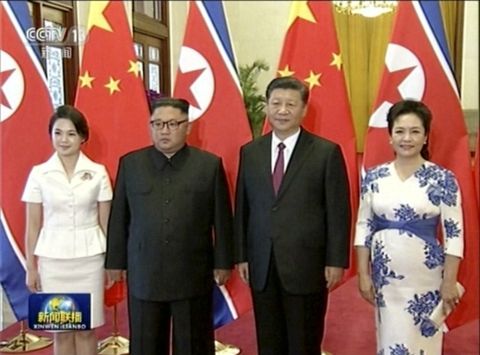


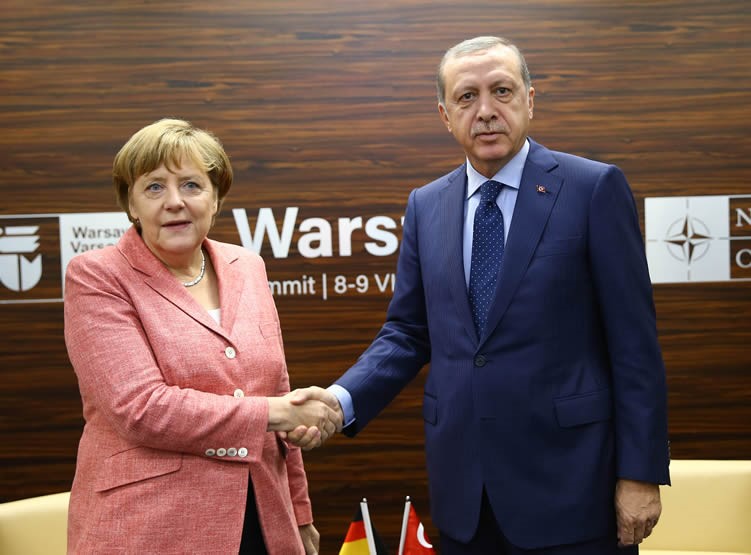






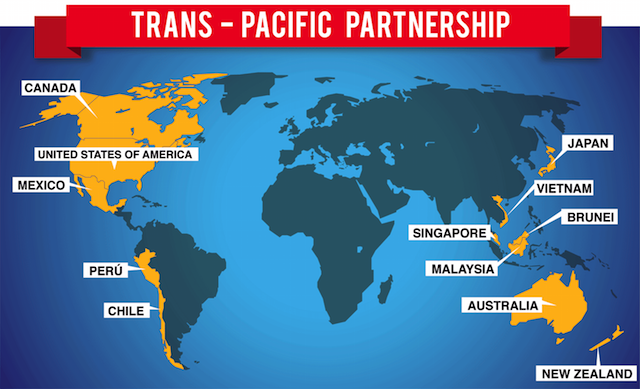

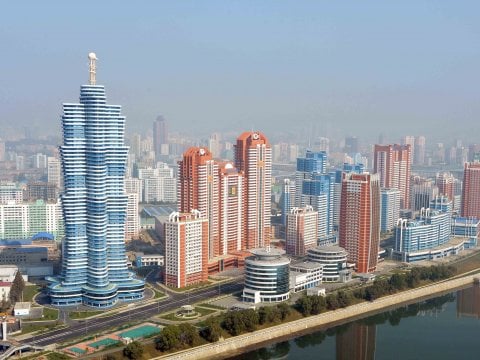

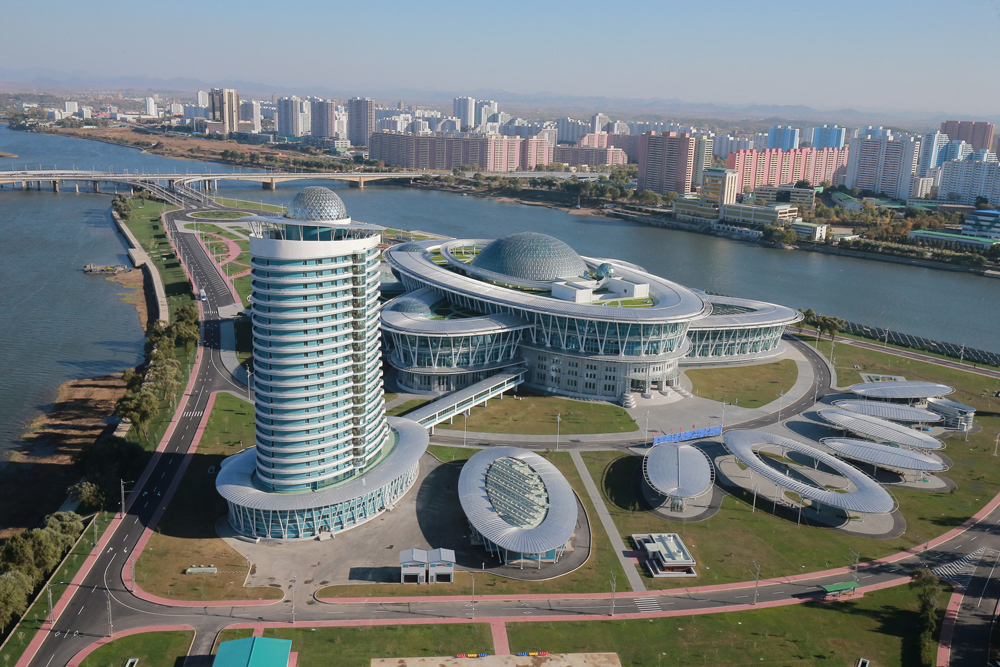
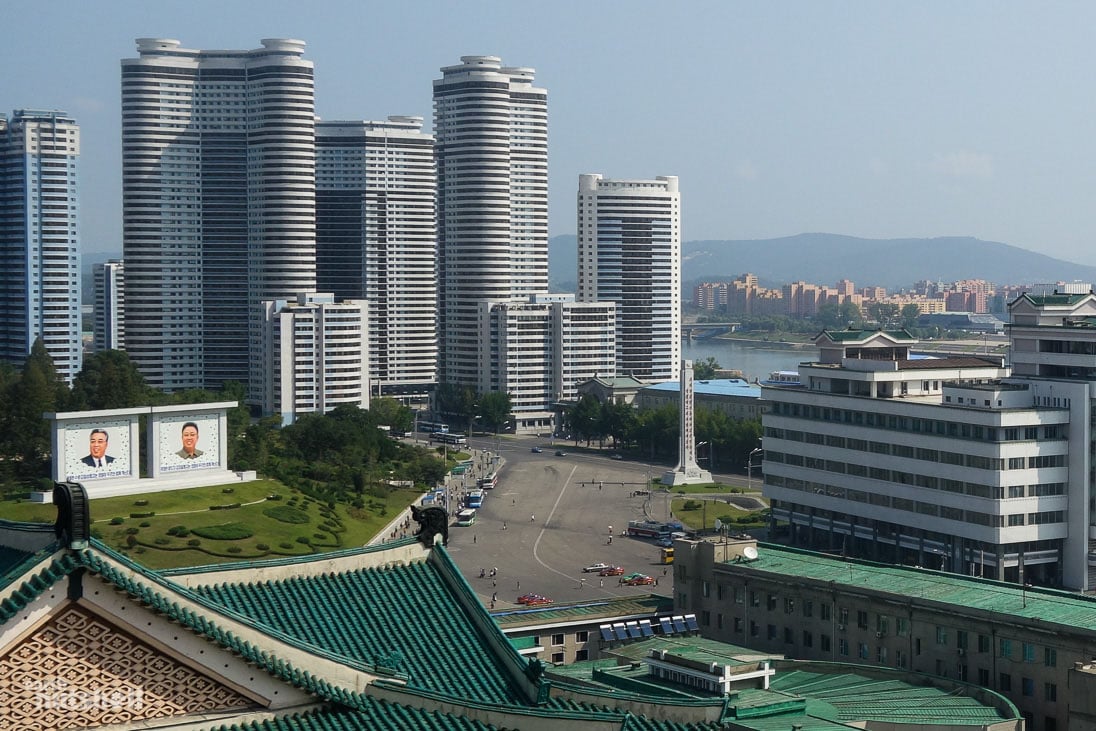
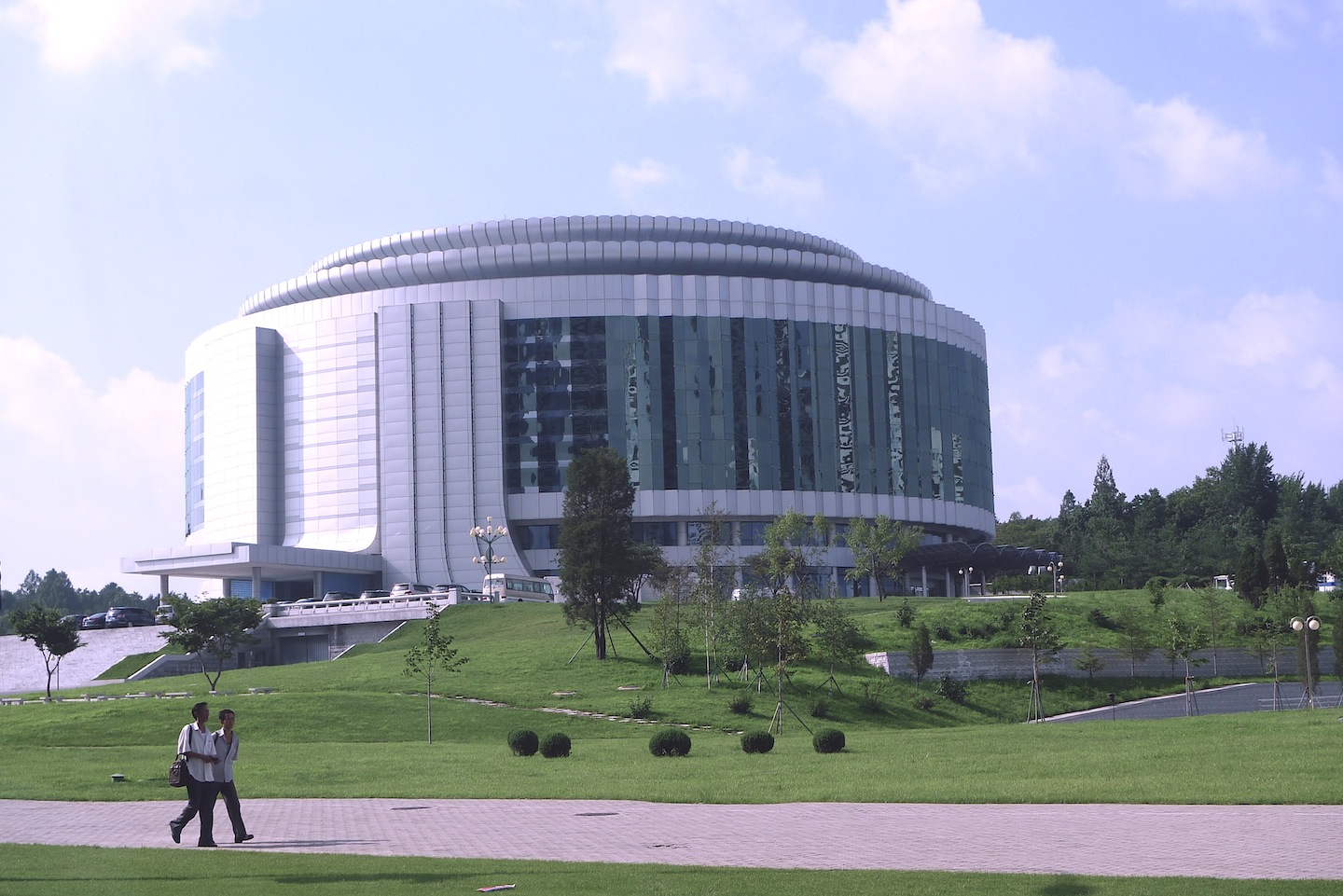


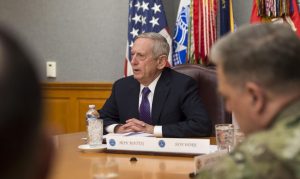
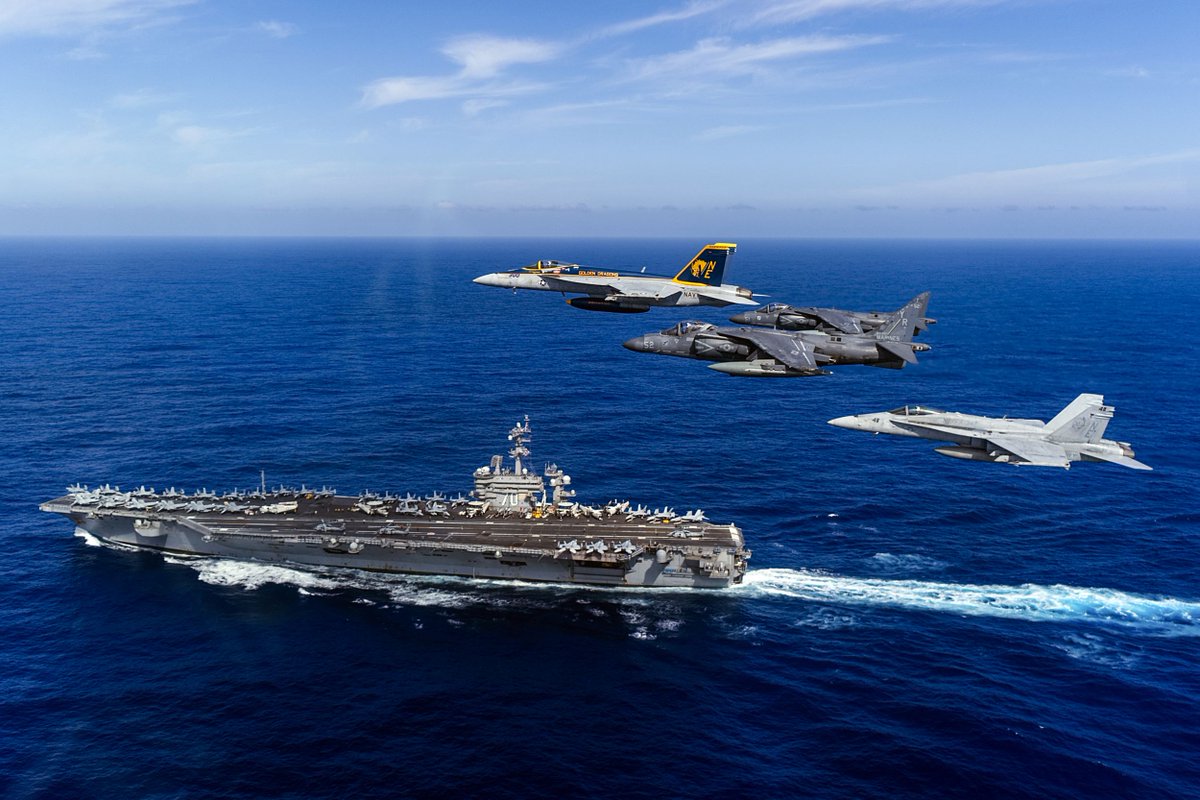
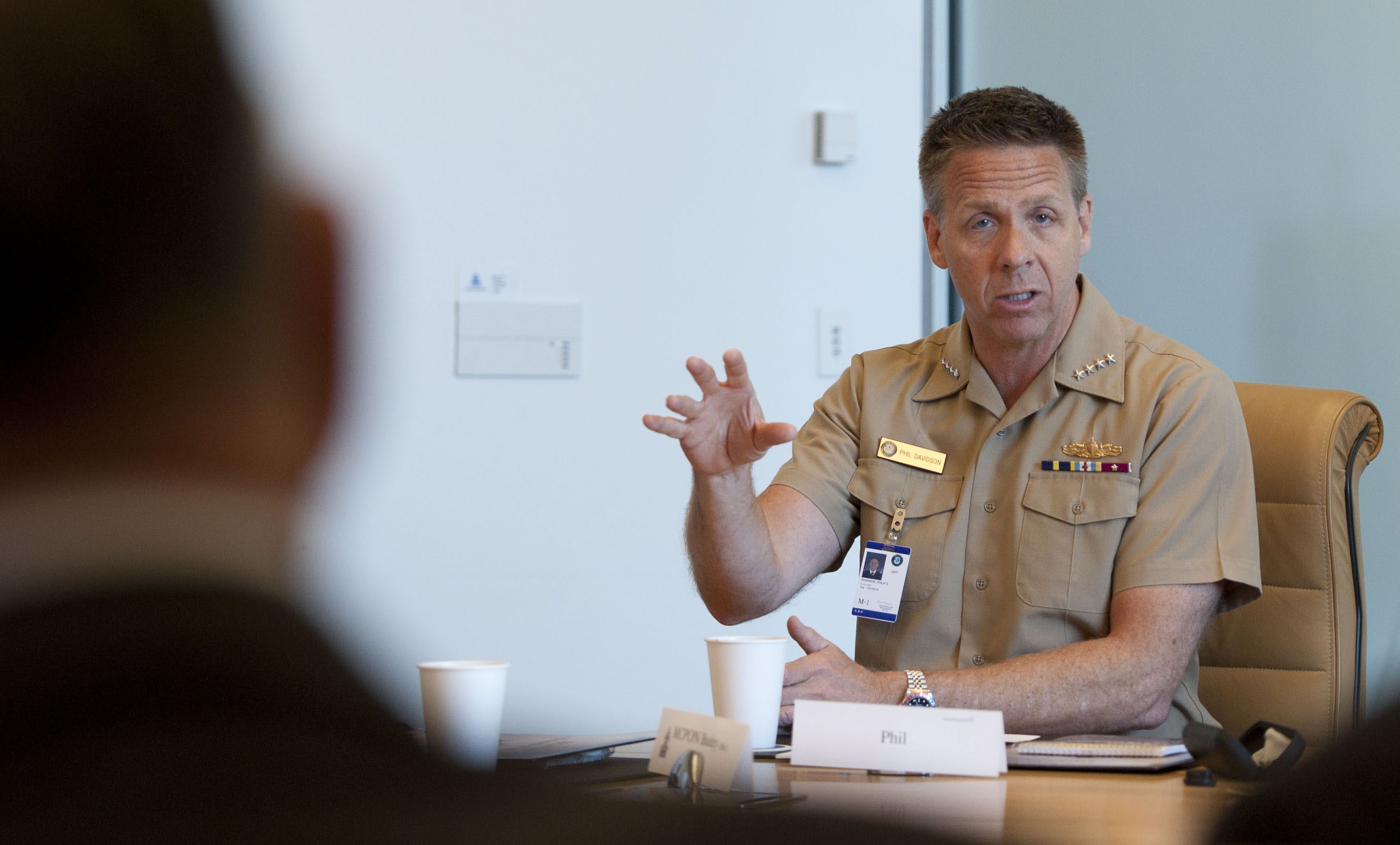


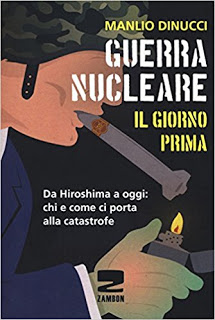

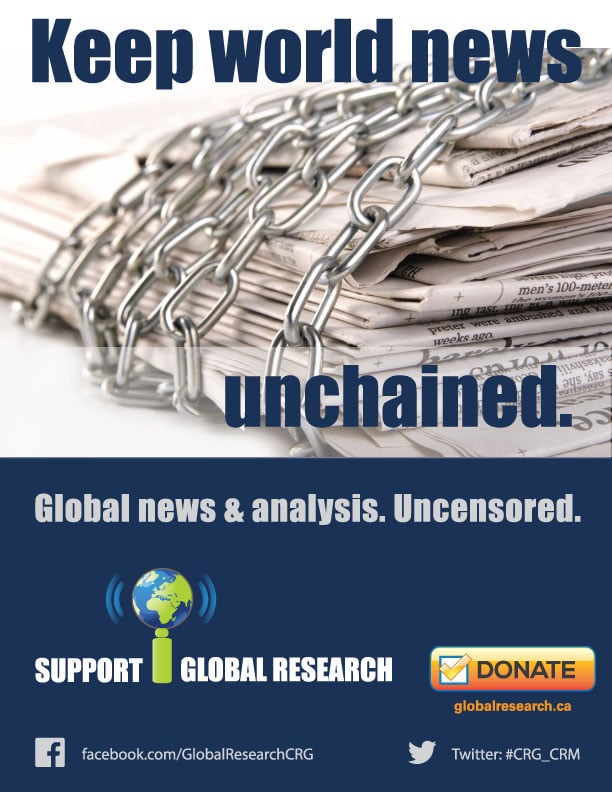 Can you
Can you 



































